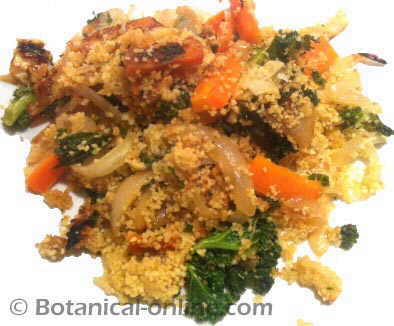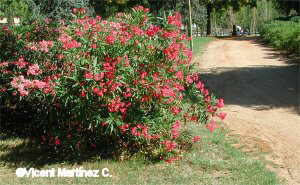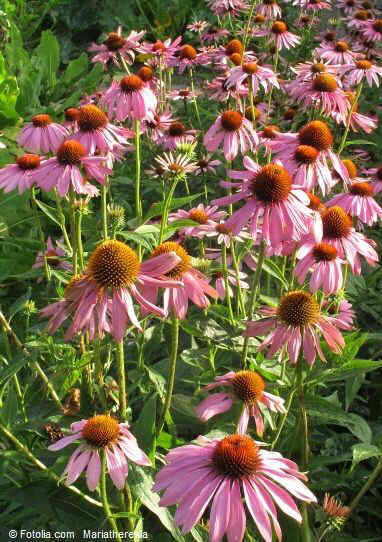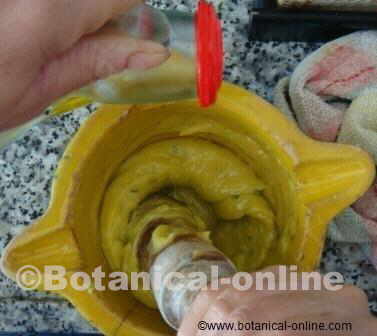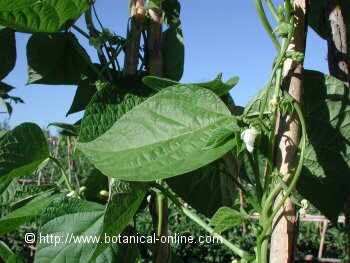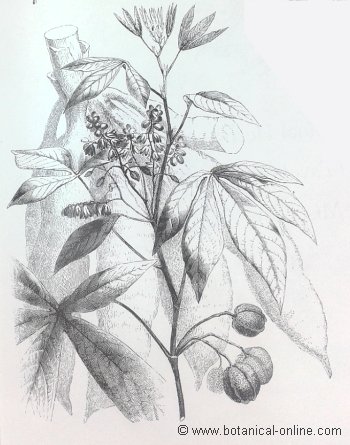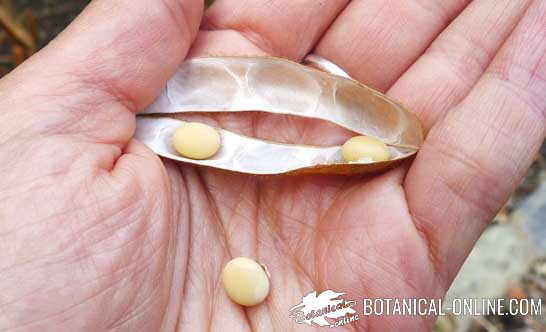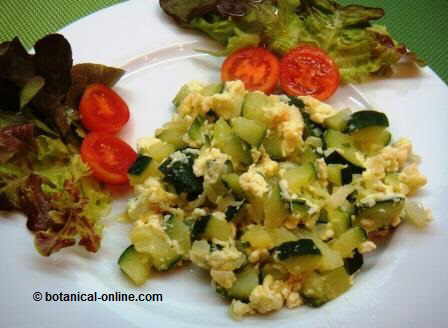Contents
Food properties of medlar
LOQUAT EDIBLE BENEFITS
Loquat, the first fruit of spring
Medlar or loquat is a spring tonic fruit that contributes with very little fat, and a balanced sugar content, very rich in carotenoids and antioxidant components.
Botanically, medlar is a fruit tree of the Rosaceae family, the same family of apple or apricot. This edible fruit is a drupe, oval, yellow-orange and within 2-3 bright seeds of brownish color.
There are two different species of fruit trees that produce loquats. One is the Japanese medlar (Eriobotrya japonica), whose fruits are common in markets; and there is also the European medlar (Mespilus germanica), less known.
English medlar is known as Japanese loquat, Japanese medlar, medlar-tree, Japanese plum, loquat, etc.
Qualities of medlar
Loquats have a nice pulp with a meaty texture, sweet and slightly acidic, depending on variety.
Inside it, there are between 2 and 3 (up to 5) large seeds that are not edible.
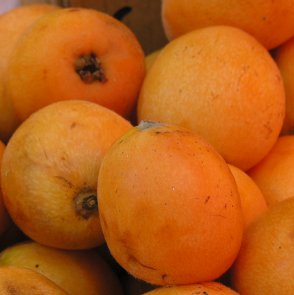
In the image, photo of loquats (Eriobotrya japonica)
How to eat medlar
To consume, remove the skin, the seeds and eat the pulp of the fresh fruit or the liquid juice.
Medlar can also be cooked for jams, compotes, pies, syrups, sauces, puddings, sweets or cakes. In that case, it provides an acid and sweet taste, that can remind us the taste of cherries.
* More information: loquat recipes
Medlar nutritional value
Table of medlar nutritional composition per 100g.
Composition of loquat per 100g | |
| Nutrient | Amount |
| Water (g.) | 86,73 |
| Calories (kcal.) | 40 |
| Carbohydrates (g.) | 12,14 |
| Proteins (g.) | 0,43 |
| Fats (g.) | 0,20 |
| Fiber (g.) | 1,70 |
| Vitamin C (mg.) | 14 |
| Vitamin B1 or thiamin (mg.) | 0,02 |
| Vitamin B2 or riboflavin (mg.) | 0,03 |
| Vitamin B3 or niacine (mg.) | 0,18 |
| Vitamin B6 or pyridoxine (mg.) | 0,10 |
| Folates (mcg.) | 14 |
| Calcium (mg.) | 16 |
| Magnesium (mg.) | 13 |
| Phosphorus (mg.) | 27 |
| Sodium (mg.) | 1 |
| Potassium (mg.) | 266 |
| Iron (mg.) | 0,28 |
| Zinc (mg.) | 0,05 |
| Copper (mg.) | 0,04 |
| Selenium (mcg.) | 0,60 |
- Calories: Medlar is considered a very lowcalorie fruit, as each unit (60g.) gives us only 24kcal.
- Carbohydrates: it provides us with natural sugars in the fruit, but in small quantities, about 7g. per serving. This makes it an ideal fruit for diabetes.
- Protein and Fat: it provides a very poor result in these nutrients. Because of its low fat content, it is a tonic fruit, and adequate in diets.
- Fiber: It is a fruit rich in pectin fiber type, which makes it ideal for making homemade jams.
- Minerals: like most fruit, medlar is rich in potassium, with diuretic properties. Its mineral content helps alkalize the body.
- Vitamins: medlar is known for its richness in provitamin A, as beta carotene and cryptoxanthin mainly. These substances have antioxidant and protective properties of the skin and stimulate the immune system. However, it is one of the fruits with a lower content of vitamin C.
Edible properties of loquats
- Purifying spring Fruit: Loquat is a fruit of spring with cleansing properties. It has very few calories and rich in carotenoids, which make it very healthy. Furthermore, recent studies support its beneficial properties for the liver.
- Medlar is a fruit highly recommended in spring, after the excesses of winter (holiday season, candy, etc.).
- Thinning: in addition to its lowcalorie, medlar components help prevent cholesterol, weight gain and diabetes.
- Liver disease: loquats benefit liver function and are suitable for hepatitis, fatty liver or cirrhosis.
- Diabetes: it is nutritionally adequate for people with diabetes because of its balanced sugar content. For its wealth of provitamin A, it protects vision naturally.
- For skin: because it is one of the richest fruit in carotene and antioxidant vitamins, medlar prevents aging of the skin and protects the mucous membranes of the body. Eating loquats will help to keep skin looking better
- Laxative: because it contains soluble fiber, it is a natural regulator of the intestinal rhythm.
- Bronchitis: Loquat leaves are used in some areas to treat bronchitis and persistent cough, helping to reduce inflammation.
![]() More information on loquat.
More information on loquat.

